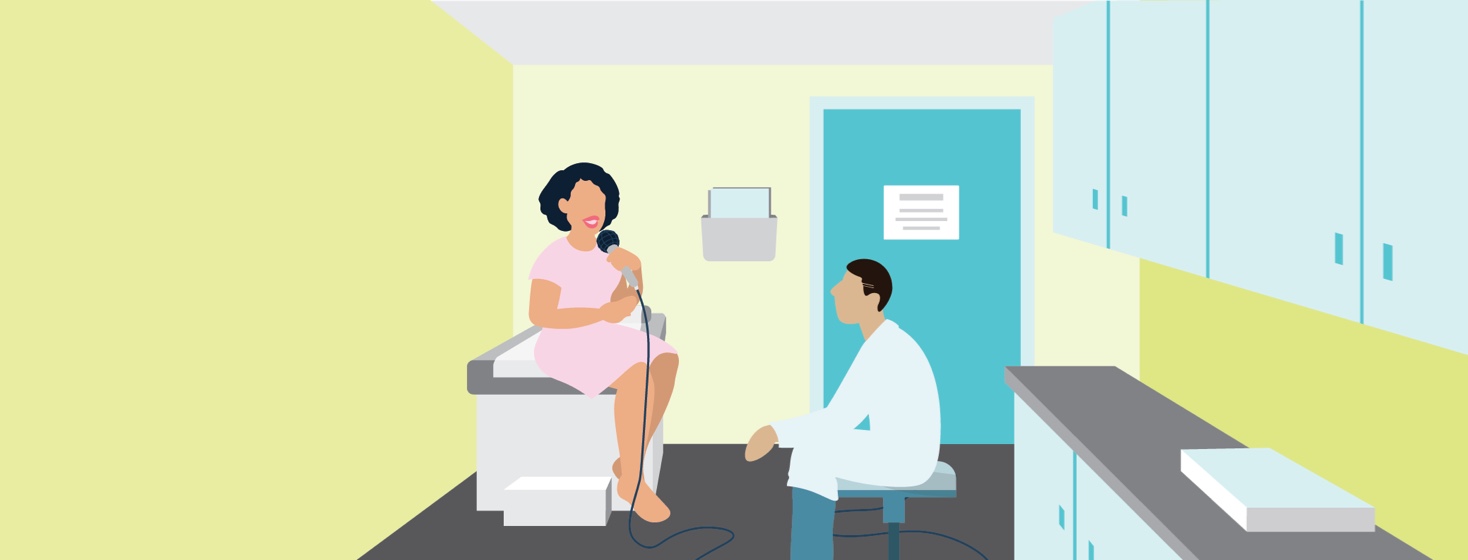Speaking Up: The Importance of Self-Advocacy With Your Oncologists
Recently, my hip was bothering me. I was experiencing pain to the point of using a wheelchair to get around. My breast cancer metastasis is present in my brain and the majority of my bones. So, I brought this up to my oncologist, who sent me to a radiation oncologist. We discussed treatment options and, together, decided that radiation therapy would be the best option to relieve the pain. I was excited but nervous.
Receiving radiation therapy for hip pain
As I lay on the hard table in the radiation room and watched the machine swirl around me and make its loud laser noise, I was anxious. I had back and brain radiation twice before this. But for some reason, this time, I was nervous.
Developing new, worsening symptoms
I received 10 days of radiation therapy. On day 6, I developed diarrhea and stomach aches. I mentioned these new symptoms to the radiation tech, who advised me to stay aware of symptoms because stomach problems were common with radiation in this area.
Well, by day 8 of treatment, I was not doing well. I had unbearable stomach pains and diarrhea. It was stomach pain like I've never experienced before. I knew something was seriously wrong and needed support from my healthcare providers. Unfortunately, this didn't happen.
This or That
Do you feel supported by your doctors and nurses?
Seeking support from my providers
First, I spoke with the radiology nurse and told her what was happening, and she advised me to go to the hospital. I did not want to do this because of fear and cost. I just wanted a scan to check things out.
Asking for a new scan
After my pointless conversation with the nurse, I decided to call my oncologist and ask to have a scan done. I spoke with a nurse practitioner, and I realize now I should have asked to talk to my oncologist directly. While speaking to the nurse practitioner, they brushed off my concerns and informed me that a scan wouldn't show anything and that it was "probably just radiation-related."
Waiting for the next radiation session
At this point, my pain worsened, and I was feeling ignored and defeated. Okay, now what? I decided to talk to my radiation oncologist before my next radiation therapy session.
My concerns were ignored again
Well, that was one of my worst encounters with a medical professional. After I explained all my pain, symptoms, and concerns, I was told, "Radiation to the hip stays in the hip area and does not affect the stomach."
Then, the radiation oncologist said we could put off the last 2 sessions, but if I didn't finish, the treatment would not be effective. I deflated right there in the office. My response was that even if it's not the radiation, something is happening. I just wanted a scan to check.
They directed me to get fluids next door from the oncologist and did not validate my request for a scan. I had never felt more dismissed and ignored. He made me feel stupid for even suggesting putting off my treatment.
Reaching my breaking point
That visit was the breaking point for me. I went to my car and cried; no, I balled my eyes out. I was in so much pain I couldn't take it anymore. I called my mom, and she said go to the emergency room, so I did.
After 5 days of strong antibiotics, a colonoscopy, and non-stop diarrhea, I was diagnosed with radiation colitis and proctitis. I was so angry with everyone who dismissed me and acted like I was being dramatic.
Adding to my anger was the fact that my oncologist called the radiation oncologist while I was in the hospital, and the radiation oncologist expressed that radiation to the hip area COULD cause colitis. Excuse me? I was irate.
Speaking up for yourself with healthcare providers
The point of my story is I should have spoken up and demanded someone take my concerns seriously. I shouldn't have to go to the hospital when I could have had a CT scan before my symptoms spiraled out of control.
I tried to speak up and endured the pain because my providers dismissed my concerns. Now, 3 months later, I still deal with colitis, and it's been hell. So don't be afraid to speak up and continue to get loud until someone addresses your needs.
The oncologists, nurses, and doctors work for us, not vice versa. If you ever feel ignored, get another opinion. Don't let anyone dismiss your feelings or concerns.

Join the conversation